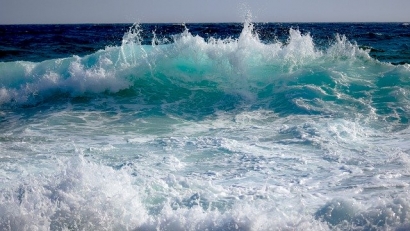
The Clean Economy Jobs and Innovation Act promotes marine energy programs as a clean and cost-effective energy source. Marine energy is generated from waves, tides, and currents in oceans and hydrokinetic water in rivers, lakes, and streams. To promote this alternative energy source, the legislation directs the federal government to accelerate the research, development, and ultimate introduction, of marine energy technology and the infrastructure needed to integrate it into our utility grids.
This legislation was developed with the input of Florida Atlantic University's Southeast National Marine Renewable Energy Center, an institution that "seeks to advance the science and technology of recovering energy from the oceans’ renewable resources, with special emphasis on those resources available to the southeastern US: initially focusing on ocean currents and offshore thermal resources."
"The United States should be leading the world in clean energy investments and innovation," Deutch said. "To effectively address climate change, we will need to transition away from fossil fuels toward cleaner energy options like marine and hydrokinetic energy. This bill will help leading research centers like Florida Atlantic University's Southeast National Marine Renewable Energy Center better understand how we can harness the significant power generated by waves, currents, and tides as an cheaper and cleaner energy source for our country."
“We are grateful for Representative Deutch’s leadership in the field of marine energy and his continued support of our work to capture clean energy from ocean currents,” FAU President John Kelly said. “The gulf stream sits right off the coast of FAU’s service area, making our university a natural pioneer in ocean current energy development to help power Florida and the nation’s future.”

